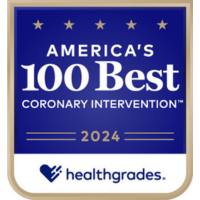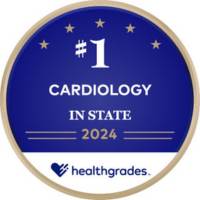High Cholesterol Is Easily Manageable
Sep 23, 2024
Less than 200 and above 240. Less than 100 and above 190. Less than 40 and above 60. These may sound like random numbers, but each one can tell you something very important about your cholesterol levels.
Cholesterol is a waxy, fat-like substance that is carried in the blood in particles called lipoproteins. Your body makes all the cholesterol it needs to produce hormones, vitamin D and substances to help digest food. However, high cholesterol level can cause thickening of blood vessel resulting in decrease blood flow that can lead to heart attack and stroke.
“There are two major kinds of cholesterol—low-density lipoproteins (LDL), which carry cholesterol in the bloodstream and can buildup in the arteries causing heart disease, and high-density lipoproteins (HDL), which carry cholesterol back to the liver to remove it from the body. Ideally, you want to have high HDL levels and low LDL levels to decrease the heart attack and stroke risk,” explains Nitin Trivedi, MD, endocrinologist at Saint Vincent Hospital.
According to Dr. Trivedi, a simple blood test can tell you if your total cholesterol is less than 200 mg/dL (milligrams of cholesterol per deciliter of blood), which is desirable. If that number is over 240 mg/dL, you have high cholesterol. An optimal LDL level is less than 100 mg/dL, while anything over 190 mg/dL is considered very high. A HDL level less than 40 mg/dL is a major risk factor for heart disease; any number above 60 mg/dL is considered protective against heart disease. This target number is much lower in patients who already have blockage of the arteries supplying the heart, or diabetes.
“Cholesterol levels in the blood can be affected by your diet, weight, exercise, heredity, age, use of certain medications, and gender. You cannot control all these factors, but you can make certain lifestyle changes to help lower your cholesterol, such as not smoking, being physically active for 30 minutes most days, maintaining a healthy weight and not drinking excessively,” he says.
Your doctor may also prescribe certain medications to bring cholesterol under control. Although statins are the most commonly used medication for lowering cholesterol, other drugs, including bile acid sequestrants, nicotinic acid, fibrates, and cholesterol absorption inhibitors, may be used based on the type of cholesterol elevation. Newer medications such as PCSK9 inhibitors and bampedoic acid can be used in patients to lower cholesterol if they cannot tolerate statins. These cholesterol-lowering drugs should be taken while following healthy lifestyle choices.
A healthy diet will play an important role in helping to lower cholesterol. Dr. Trivedi recommends you should limit processes foods with high levels of saturated fatty acids. Instead, eat foods that are low in saturated fat and cholesterol, as consumed in the Mediterranean diet including starchy vegetables, low fat dairy, lean meats, fruits, olive oil, nuts and legumes.
High cholesterol does not have any symptoms, but it can be easily monitored and controlled. For more information about managing your cholesterol and having it checked regularly, talk with your doctor or call (866) 494-3627 for a free referral to a Saint Vincent hospital physician near you.



 This distinction places us in the top 5% of hospitals nationwide for coronary intervention.
This distinction places us in the top 5% of hospitals nationwide for coronary intervention.